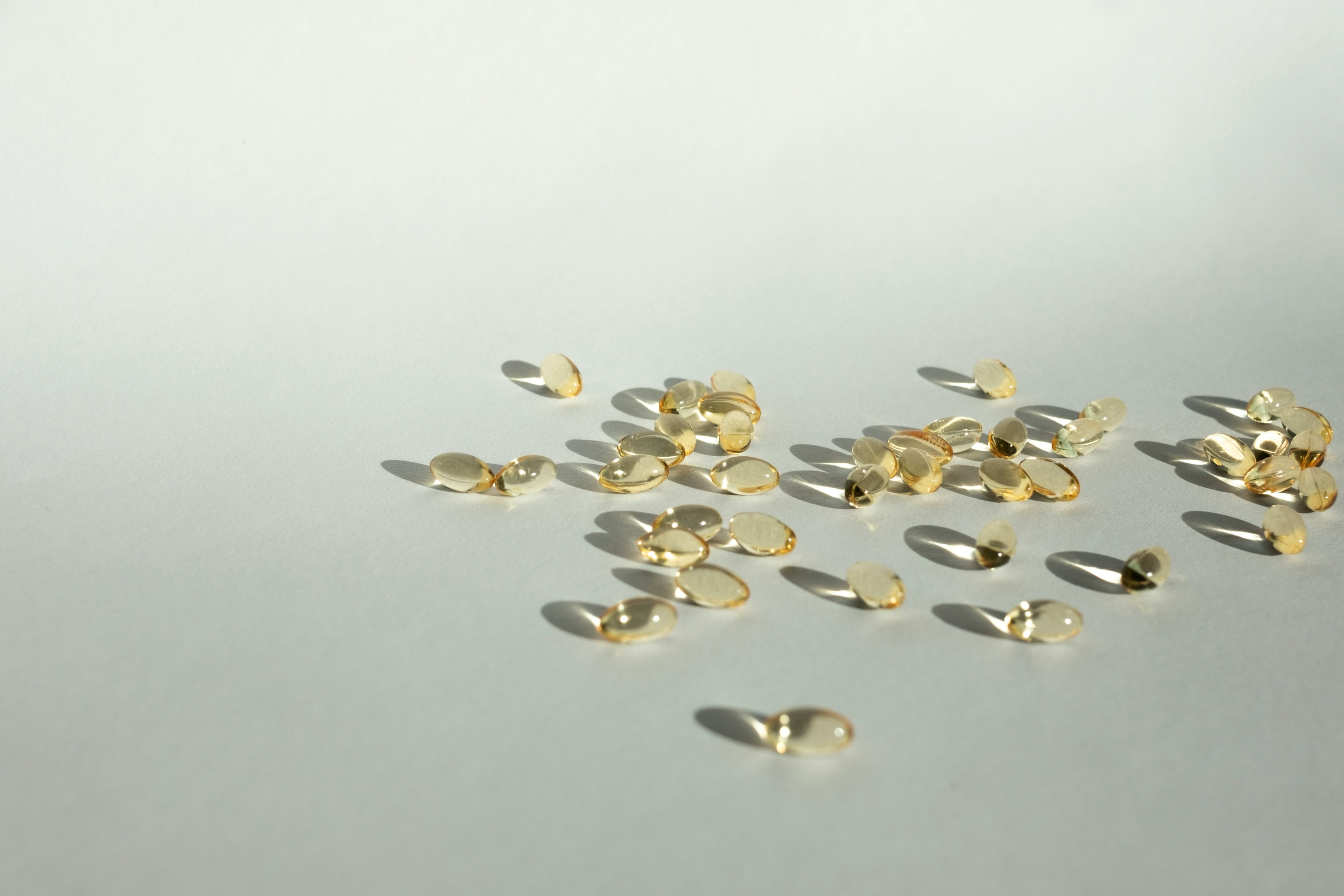Omega 3 fatty acids are essential as they help the body in many ways. You might have heard about the krill oil vs fish oil debate, and wonder, which one is the best choice? Well, they both support heart health, brain function, and reduce inflammation, but the big difference lies in how the body absorbs each one, their antioxidant content, and even their potential side effects.
Here's the key difference in fish oil versus krill oil: their structure, fish oil contains omega-3s in the form of triglycerides, while krill oil delivers them as phospholipids, which may be easier for your body to use.
Krill oil naturally contains astaxanthin, a potent antioxidant that helps protect cells from oxidative stress, and Fish oil is typically more affordable and has been studied for decades, showing a strong record of proven benefits.
Another factor to consider is digestion. Some individuals experience discomfort in they're stomach with fish oil, whereas krill oil tends to be gentler.
If you're looking for a high-dose of omega-3s, fish oil supplements are generally the ones that contain a higher concentration per serving. Whichever one you choose, pairing it with a Magnesium Glycinate supplement can make a difference and help you're overall health as magnesium supports muscle relaxation, sleep quality, and a healthy nervous system function.

Choosing between krill oil or fish oil will depend on your health goals and budget preferences. If you're after a budget-friendly option, fish oil is a solid choice. But if absorption and antioxidant benefits matter more to you, then krill oil could be worth the extra cost.
What is Krill Oil?
Krill oil is a supplement that's derived from tiny, shrimp-like crustaceans called krill. It's packed with omega-3 fatty acids, which are important for heart health, brain function and reducing inflammation. Krill oil also contributes to bone health, as it helps to maintain strong bones and joints, especially as we age.
Many people ask themselves, "Is krill oil as good as fish oil?" The answer will depend on your needs. Krill oil is known for its high bioavailability, antioxidant properties and being gentler on digestion. Fish oil, contains typically a higher amount of omega-3s per serving and has been extensively studied for decades, making it a trusted choice.
So, when comparing fish oil vs krill oil, take into account how the body absorbs them, they're antioxidant properties, and potential side effects.'

What is Fish Oil?
Fish oil is a well-known supplement made from the fats of oily fish like salmon, sardines, and mackerel. It's packed with omega 3 fatty acids that support heart health function, brain function, and reduce inflammation.
Many people rely on fish oil to support their health, when looking at krill vs fish oil, as fish oil is high in omega-3 content and has an extensive research backing its benefits.
One of the major advantages of fish oil is its role in Metabolic Health, because the Omega-3s help to regulate blood sugar, reduce inflammation and improve cholesterol levels, all of which help to a well-functioning metabolism.
Taking fish oil regularly can also help with weight management, cardiovascular health, and having good energy levels, so regardless of which oil you pick, getting enough omega-3s in your diet is a great way to stay healthy.

Key Differences Between Krill Oil and Fish Oil
Knowing the difference between krill oil and fish oil can help you decide which one suits your health needs, and to do so we can compare them based on they're amount of omega-3s, source, antioxidant properties, and absorption.
Both oils offer essential fatty acids that support health, but they come from different sources. Fish oil is derived from fatty fish like salmon and sardines, while krill oil comes from small crustaceans called krill. This is important because it affects their form of omega-3s they contain. Fish oil provides them as triglycerides and krill oil delivers them as phospholipids.
If we compare them by they're absorption, the difference between fish oil and krill oil is that Krill has superior bioavailability, meaning the body can process it more efficiently. Fish oil contains a higher amount of omega-3s per serving, and is a cost-effective option, but both are excellent for Heart Health.
Another thing to consider is additional nutrients. Kril oil naturally contains astaxanthin, a strong antioxidant that helps protect cells from damage. Many find it gentler on the stomach too. Fish oil has been proven to be extremely effective for years now, and is available in higher doses. Both oils support better sleep, as omega-3s are linked to melatonin production and relaxation.
So, is krill oil or fish oil better? It depends on what matters the most to you. If absorption and antioxidant are your priority, krill oil can be a better option for you. If you're looking for a more budget-friendly option with high omega-3 content, fish oil will be the best way to go.
Health Benefits
When it comes to omega-2 supplements, many doubt whether fish oil or krill oil is the best choice. Understanding they're health benefits can help you make an informed choice.
Fish oil supplements
Fish oil supplements contribute to joint health as the Omega-3 fatty acids reduce inflammation that helps to ease joint pain and stiffness, especially in conditions like arthritis.
This oil also is excellent for Brain Health. The Omega-3s, particularly DHA, are very important for cognitive function, memory and mood regulation. Fish oil has a long history of proven benefits in this area.
Lastly, fish oil typically offers a higher concentration of Omega-3s per serving, which makes it a more budget-friendly choice.
Krill oil supplements
Krill oil supplements also contribute to joint health. This one in particular contains astaxanthin, a natural antioxidant that may provide an extra support for joint comfort and mobility.
Krill oil aids in brain health due to its phospholipid form of omega-3s that might be more efficiently absorbed by brain cells.
When it comes to digestion, cost and antioxidant content, Krill oil is often easier on the stomach and it contains astaxanthin for better protection against oxidative stress.
So, is krill oil or fish oil better? It ultimately depends on what you need and your health and budget priorities. Either way, both supplements offer incredible health benefits and can be an excellent addition to your daily routine.
Krill Oil vs Fish Oil - Which One Should You Choose?
Choosing between krill oil versus fish oil comes down to understanding their differences in absorption, benefits, and impact on health. Both are excellent sources of omega-3 fatty acids!
An important factor to have in mind is Digestive Health. Some people find fish oil harder to digest. Krill oil happens to be gentler on the stomach due to its phospholipid structure, making it a good option for those with sensitive stomachs.
For Men's health, both oils are great and have lots of benefits, but Krill oil has an advantage due to its astaxanthin content. This antioxidant helps combat oxidative stress, which can support muscle recovery, improve energy levels and vitality. Fish oil has a higher dose of omega-3s per serving, so it makes it a great cost-effective option for health, brain function, and reducing inflammation.
In the end, the choice between krill oil versus fish oil depends on your health needs.

Conclusion
When comparing krill oil vs fish oil, the best choice will depend on your health goals and needs. As we've mentioned before, Krill oil is absorbed better by the body and has antioxidant support, while fish oil provides a higher dose of omega-3s at a lower cost.
For Digestive health, krill oil is gentler on the stomach, and for Men's health it's astaxanthin content helps muscle recovery and energy. Fish oil remains as a well-researched option for heart and brain health.
Bottom line, whichever you choose, always make sure to have good levels of omega-3s as they are essential for your health. Before adding any supplement, always consult a healthcare professional to make sure it fits your needs. All supplements should support a balanced and healthy lifestyle.

